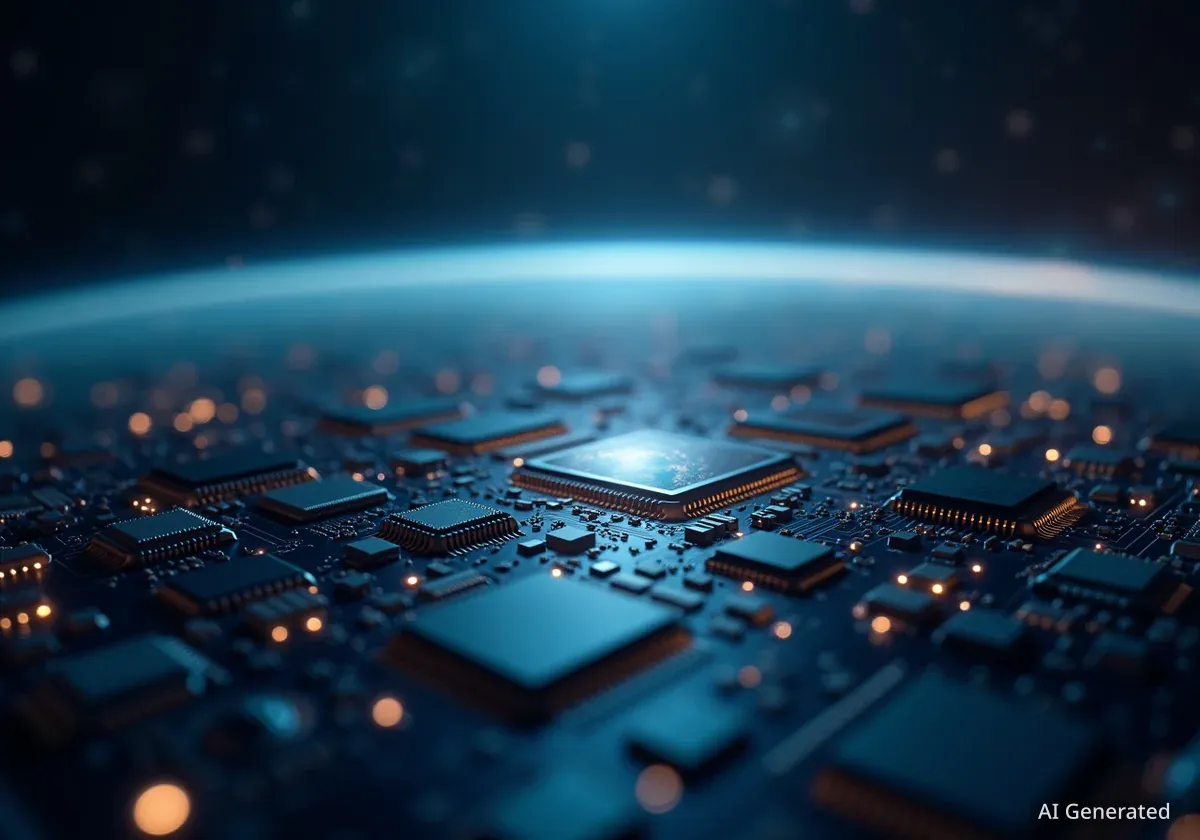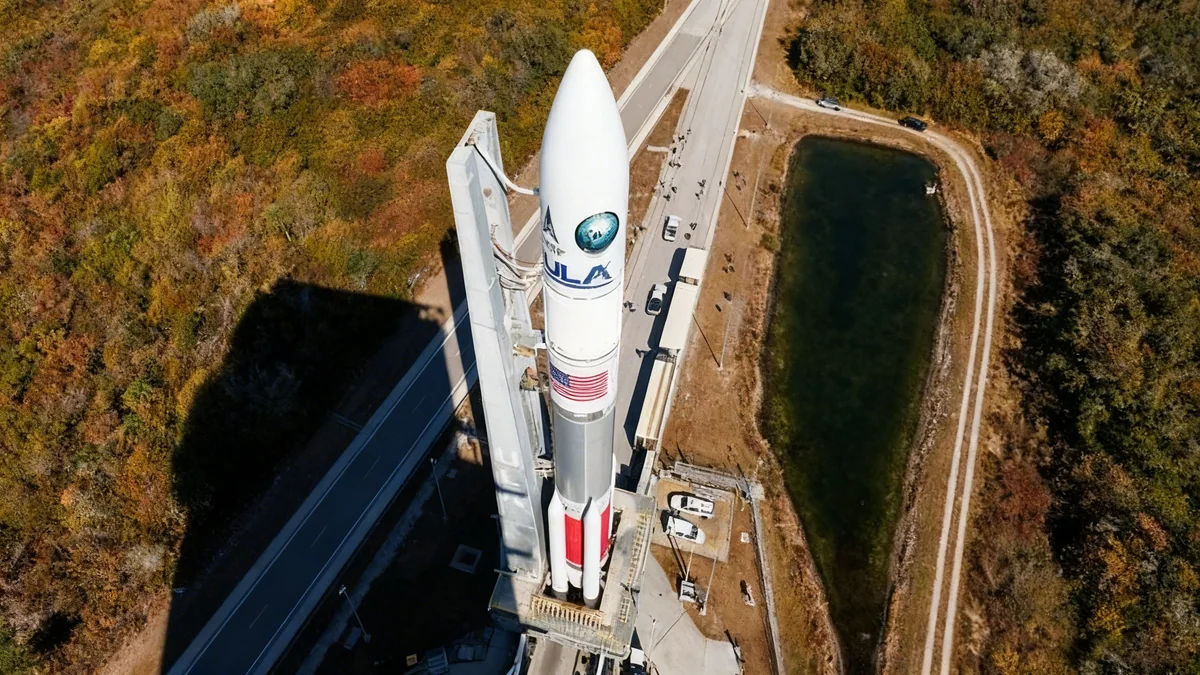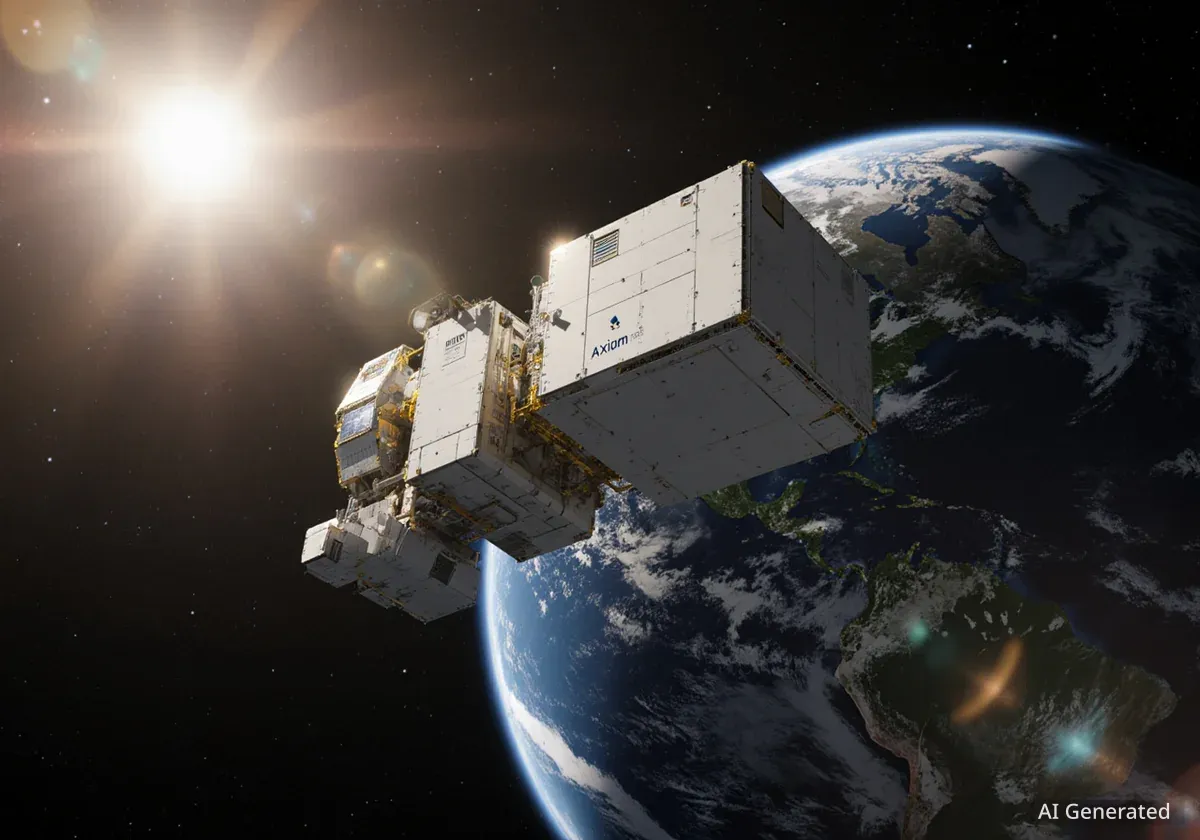Coinbase and Space Markets have announced a strategic partnership to develop and build the core financial infrastructure for the emerging new space economy. This collaboration aims to create a dedicated financial system to support the growing number of commercial activities beyond Earth's atmosphere.
The joint initiative will leverage Coinbase's expertise in digital asset technology and secure financial platforms alongside Space Markets' specialized focus on the commercial space sector. The goal is to establish a framework for transactions, investments, and asset management tailored to the unique requirements of off-world industries.
Key Takeaways
- Coinbase and Space Markets have entered a formal partnership to create financial systems for the space economy.
- The project will focus on developing infrastructure for secure transactions, asset tokenization, and investment in space-related ventures.
- This initiative aims to support commercial activities such as satellite operations, asteroid mining, and in-space manufacturing.
- The collaboration combines Coinbase's digital finance experience with Space Markets' industry-specific knowledge.
Details of the Collaboration
The partnership between Coinbase and Space Markets marks a significant step toward formalizing the economic landscape of commercial space operations. The collaboration is designed to address the complex financial needs of an industry that operates across international borders and in the unique environment of space.
According to the announcement, Coinbase will contribute its established technology stack for digital currency exchange, custody services, and secure transaction processing. This includes building systems capable of handling high-value, cross-border payments efficiently and securely, which are critical for capital-intensive space projects.
Space Markets will provide deep industry expertise, identifying the specific financial products and services required by companies in the space sector. This includes everything from financing for satellite launches to managing revenue from data services and future resource extraction.
A Focus on Digital Assets
A central component of the new infrastructure will be the use of digital assets and blockchain technology. The partnership plans to explore the tokenization of space-based assets, which could represent ownership in satellites, mining claims on asteroids, or shares in off-world manufacturing facilities.
Tokenization is expected to increase liquidity and provide new avenues for raising capital for space ventures, which have traditionally relied on venture capital and government funding. By creating a more fluid and accessible market, the partners hope to accelerate innovation and growth across the sector.
Background: The Rise of the Commercial Space Sector
The "New Space Economy" refers to the shift from government-led space exploration to a diverse, commercially driven industry. Companies like SpaceX, Blue Origin, and Rocket Lab have dramatically reduced launch costs, opening up space to a wide range of commercial activities, including satellite internet, Earth observation, and space tourism.
Defining the New Space Economy
The new space economy encompasses a broad range of commercial activities that occur in or are related to space. This ecosystem is rapidly expanding beyond traditional satellite communications and launch services. Today, it includes a variety of emerging sectors with significant economic potential.
These sectors require robust financial systems to manage complex supply chains, international payments, and novel asset classes. The collaboration between Coinbase and Space Markets aims to provide the foundational layer for these economic activities to thrive.
Projected Market Growth
According to multiple market analyses, the space economy is projected to grow substantially. Some estimates predict its value could exceed $1 trillion by 2040, driven by decreasing launch costs and increasing private investment in space-based technologies and services.
Key Industries in the Space Economy
- Satellite Services: This includes global communications networks, Earth observation data, and GPS services.
- Launch Providers: Companies that provide rocket launch services for satellites, cargo, and eventually, humans.
- In-Space Manufacturing: Developing products in microgravity for use in space or on Earth, such as fiber optics or specialized alloys.
- Resource Extraction: Long-term plans for mining valuable minerals from asteroids, the Moon, and other celestial bodies.
- Space Tourism: Suborbital and orbital flights for private citizens, a market that is just beginning to emerge.
The Role of Financial Infrastructure
For any economy to function, it requires a trusted and efficient financial infrastructure. This includes systems for making payments, securing assets, raising capital, and managing risk. The space economy presents unique challenges that legacy financial systems are not equipped to handle.
"Building a robust economy in space requires a financial system that is as innovative as the technologies that take us there. Our goal is to create a seamless and secure platform that empowers the next generation of space entrepreneurs."
Challenges include the lack of a single legal jurisdiction, the high-risk nature of investments, and the need for instantaneous global transactions. Digital assets and decentralized finance (DeFi) principles are seen by many as a potential solution to these issues, offering transparency, security, and global accessibility.
The Coinbase and Space Markets initiative is designed to be the first comprehensive attempt to build such a system from the ground up, specifically for the space sector.
Implications for the Future
The development of a dedicated financial infrastructure for the space economy could have far-reaching consequences. By making it easier for space companies to conduct business and attract investment, this partnership could significantly accelerate the pace of commercial space development.
A successful platform would likely become the standard for how financial operations are conducted in space. This could pave the way for more ambitious projects, such as large-scale orbital manufacturing plants, permanent lunar bases, and asteroid mining operations.
Furthermore, the creation of new, space-based asset classes could open up novel investment opportunities for both institutional and retail investors, further integrating the space economy into the global financial system.
The project is expected to unfold in phases, with initial development focused on payment and custody solutions for existing satellite and launch companies. Subsequent phases will likely introduce more complex financial products as the market matures.





